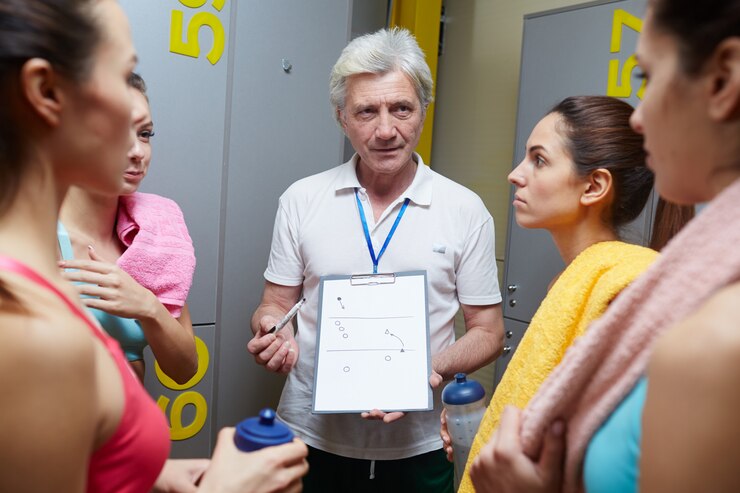The Olympics have long been a source of inspiration for people around the world. Watching the finest athletes from every corner of the globe push their limits, chase records, and pursue gold medals is awe-inspiring. But behind the physical feats and triumphs lie years of dedication, resilience, and discipline. Olympic athletes embody what it takes to excel at the highest level, and their advice offers valuable lessons for anyone striving to achieve success, whether in sports, business, or life in general.
What makes their wisdom so impactful? Olympic athletes must master not only their physical craft but also their mental strength. They encounter setbacks, pressure, and the immense challenges of performing on the world stage, often under extreme scrutiny. The lessons they’ve learned on their journey to the Olympics can apply to anyone facing personal or professional challenges. Let’s explore some of the most powerful advice from Olympic athletes that you can integrate into your own life.
The Power of Persistence
One of the most common themes in Olympic athlete advice is the importance of persistence. Olympic athletes understand that success doesn’t happen overnight. It’s the result of years—sometimes decades—of practice, perseverance, and overcoming failures. Many Olympians have shared stories of setbacks, injuries, and moments of self-doubt, but they emphasize the importance of continuing the journey, no matter how tough things get.
For instance, Michael Phelps, the most decorated Olympian of all time, openly discusses his struggles with mental health and the intense pressure he faced throughout his career. Despite numerous challenges, Phelps pushed through adversity to claim 23 Olympic gold medals. His advice? “You can’t put a limit on anything. The more you dream, the farther you get.” His story reminds us that while obstacles are inevitable, persistence leads to breakthroughs, whether you’re in the pool or pursuing a personal goal.
Embrace the Process, Not Just the Outcome
While Olympic athletes are driven by the desire to win, they also understand that success is rooted in the process. Training for the Olympics requires a relentless focus on incremental progress, discipline, and consistency. Athletes don’t wake up thinking only about winning medals—they focus on perfecting their craft every single day. This commitment to the process is what sets them apart.
Take the advice of Simone Biles, one of the greatest gymnasts in history. Biles emphasizes the importance of enjoying the journey: “If you don’t enjoy what you do, it’s hard to do it well.” Her success has been built on a deep passion for gymnastics and a focus on improvement rather than just winning. For anyone striving for success, whether in business or personal growth, embracing the daily grind and focusing on progress can lead to greater fulfillment and results.
Setting Clear and Attainable Goals
Another common piece of advice from Olympians is the importance of setting clear, measurable goals. Olympic athletes break down their lofty ambitions into smaller, actionable steps. Each training session, each race, each competition is part of a larger, long-term plan. By setting short-term goals that build toward a long-term vision, they maintain focus and motivation, even when the path seems daunting.
Usain Bolt, the fastest man in history, attributes much of his success to goal-setting and visualization. Bolt has often spoken about the power of envisioning his races and seeing himself achieve his goals long before stepping onto the track. His advice is to “Believe in your dreams, no matter what.” Whether you’re looking to improve your fitness, advance your career, or achieve a personal milestone, setting clear goals and visualizing success can help turn aspirations into reality.
Handling Pressure and Staying Composed
The Olympic Games are one of the most pressure-packed environments in sports. Athletes have to perform on a global stage, often in front of millions of viewers, while competing against the best in the world. Despite the immense pressure, Olympic athletes develop strategies to stay calm and composed, which is something everyone can learn from.
Nadia Comăneci, the first gymnast to ever score a perfect 10 at the Olympics, knows all too well what it’s like to compete under immense pressure. She advises that in high-stress situations, “You have to believe in yourself and trust your preparation.” Trusting your skills and preparation is essential in any high-stakes environment, whether it’s an important presentation, a job interview, or a personal challenge. Developing mental resilience, like Olympians, can help you manage pressure and stay focused when it matters most.
Overcoming Failure and Learning from Setbacks
For Olympic athletes, failure is part of the process. Most have experienced losses, injuries, and missed opportunities along the way. However, they view setbacks not as defeats, but as opportunities to learn, improve, and come back stronger. The ability to turn failure into a stepping stone for success is one of the most valuable lessons we can learn from these athletes.
Allyson Felix, a track and field legend with multiple Olympic gold medals, once faced the heartbreak of narrowly missing out on a gold medal in the 200 meters at the 2012 London Olympics. Instead of letting the loss define her, Felix used it as motivation to train harder and returned to win gold in later events. Her advice? “There are going to be difficult moments, but you have to keep going.” This mindset of resilience is crucial for anyone facing challenges. Failure is not the end; it’s a part of growth.
Building a Support System
While Olympic athletes are often celebrated for their individual performances, few succeed without a strong support system. Coaches, teammates, family, and friends all play critical roles in helping athletes achieve their goals. Olympic athletes frequently express gratitude for their support networks and emphasize the importance of surrounding yourself with people who believe in you and push you to be your best.
For instance, Katherine Grainger, Britain’s most decorated female Olympian, has often credited her support system for helping her through the toughest moments of her career. She advises, “Never underestimate the power of those around you who lift you up.” Whether you’re pursuing a personal or professional goal, having a support network of mentors, friends, and colleagues can make a huge difference in your ability to succeed.
The Importance of Rest and Recovery
While hard work and dedication are critical to success, Olympic athletes also understand the importance of rest and recovery. Training at the elite level places an immense strain on the body, and recovery is just as important as training itself. Many athletes emphasize the need to prioritize sleep, rest, and mental recovery to avoid burnout and injury.
Eliud Kipchoge, the Olympic marathon champion, is known for his disciplined training regimen but also his commitment to recovery. Kipchoge has spoken about the importance of mental clarity and rest, noting that balance is key to long-term success. For those of us striving to achieve big goals, it’s essential to remember that rest and recovery are not signs of weakness—they are crucial components of sustainable success.
Staying Humble and Grounded
Despite their fame and achievements, many Olympic athletes remain humble and grounded. They often talk about the importance of staying connected to their roots and not letting success inflate their egos. This humility allows them to stay focused on their goals and continue working hard, even after reaching the pinnacle of their sport.
Mo Farah, a multiple Olympic gold medalist in long-distance running, embodies this mindset. Farah’s humility and work ethic have made him one of the most respected athletes in the world. His advice? “Stay humble, stay hungry.” No matter how successful you become, staying grounded and continuing to strive for improvement is key to long-term achievement.
Frequently Asked Questions
How do Olympic athletes stay motivated for long periods?
Olympians stay motivated by setting clear goals, focusing on incremental progress, and embracing the process. They also find purpose and passion in their sport, which helps them stay driven even through tough times.
What mental strategies do Olympic athletes use to manage stress?
Olympians use various mental strategies, including visualization, meditation, and positive self-talk. They also trust their preparation, which helps them stay calm and composed under pressure.
How important is goal-setting for Olympic athletes?
Goal-setting is crucial for Olympic athletes. They break down their long-term ambitions into smaller, actionable steps, which helps them maintain focus and motivation throughout their training.
Do Olympic athletes ever struggle with self-doubt?
Yes, even the best athletes experience self-doubt. However, they overcome it by staying focused on their preparation, seeking support from coaches and teammates, and trusting the process.
What can we learn from Olympic athletes about handling failure?
Olympic athletes view failure as a learning opportunity. Instead of dwelling on setbacks, they use them to fuel their growth and come back stronger in future competitions.
How do Olympians balance hard work and recovery?
Olympians understand that rest is essential to peak performance. They prioritize sleep, recovery, and mental well-being to ensure they are in the best possible shape for competition.
Conclusion
The wisdom and experiences shared by Olympic athletes offer a powerful reminder that success, whether in sports or life, is built on persistence, resilience, and the ability to learn from both victories and defeats. By applying these lessons—setting clear goals, embracing the process, handling pressure with grace, and learning from setbacks—we can all strive for our own version of greatness, no matter what our pursuits may be.
Incorporating the advice from Olympic athletes into your personal or professional life can provide you with the tools and mindset necessary to overcome obstacles and achieve your highest potential. After all, as the world’s top athletes have shown us, success is about much more than talent; it’s about the mental fortitude to keep pushing forward, even when the journey is long and challenging.











